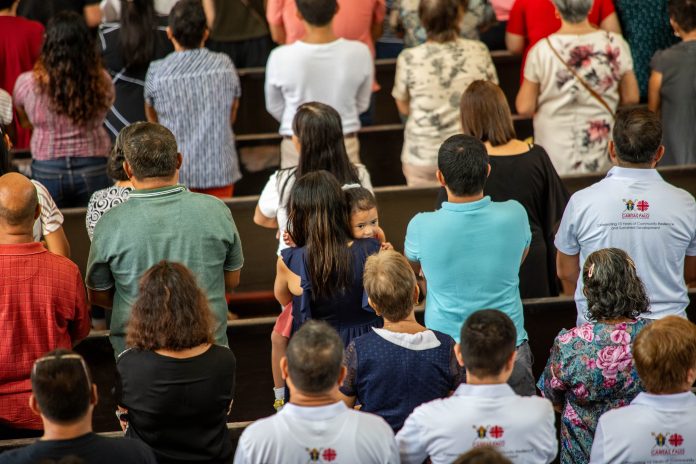As a teacher, I have always been energized to teach theology among lay people, much more inspired than teaching it to young seminarians maybe because these seasoned lay leaders have deeper and greater experience to reflect on than youthful candidates to the priesthood.
But maybe also because the experience that they express in class truly comes from the difficult questions in their lives, sometimes even beyond theologians and books of theology have ever imagined. This is what makes theology more exciting on the ground.
We just ended a semester of theological and pastoral training of lay people. And the experience has been the same all throughout these years since 2008 when we started the Hapag-Layko program of SVST. As a teacher, it is I who have been enriched, maybe even more than I have enriched their theological lives.
If our lay people will not be given access to theological and pastoral training, the Church will be impoverished. Not only because we will not have a theologically empowered laity, but because we will not have a theology enriched by the questions of the laity as they grapple with the rough grounds of their lives.
After the Synod on Synodality, they issued a Synthesis Statement for the People of God to ponder on. Much of it talks about the role of lay people, especially women, in the church of our times.
Let us listen to what they said:
“Before any distinction of charisms and ministries, ‘we were all baptized by one Spirit into one body” (1Cor. 12:13). Therefore, among all the baptized, there is a genuine equality of dignity and a common responsibility for the mission, according to the vocation of each. By the anointing of the Spirit, who “teaches all things” (1Jn 2:27), all believers possess an instinct for the truth of the Gospel, the sensus fidei. (3. c)
“This consists in a certain connaturality with divine realities and the aptitude to grasp what conforms to the truth of faith intuitively. Synodal processes enhance this gift, allowing the existence of that consensus of the faithful (consensus fidelium) to be confirmed. This process provides a sure criterion for determining whether a particular doctrine or practice belongs to the Apostolic faith. (3.c)
“The lay faithful are also increasingly present and active in service within Christian communities. Many of them organize and animate pastoral communities, serve as religious educators, theologians and formators, spiritual animators and catechists, and participate in various parish and diocesan bodies. In many regions, the life of Christian communities and the mission of the Church depends upon catechists. In addition, lay people serve in safeguarding and administration. All of these contributions are indispensable to the mission of the Church; for this reason, the acquisition of necessary competencies should be provided for. (8.e)
Women’s access to formation programs and theological study needs to be considerably expanded. We suggest that women be integrated into seminary teaching and training programs to foster better formation for ordained ministry. (9.p)
Lay people have been studying theology in the Masters and PhD programs in St. Vincent School of Theology together with seminarians and religious sisters. A common formation of the whole people of God is always helpful to our future priests and religious. We say in SVST that theological formation is a right and responsibility of the whole people of God.
SVST has also been running a theological and pastoral formation program for the laity called SVST Hapag-Layko since 2008 or even earlier catering to different lay ministries of the dioceses in the Metro Manila area: BEC, liturgical ministries, theological formation, and spirituality series. Hundreds of graduates now assist the church ministries in their parishes as they have been empowered with this theological training.
Thanks to “Pete” Enrique Batangan, its former director and now Carol Daria who succeeded him. Thanks to all lay people who dedicated their Saturdays to this program. Thanks also to all the professors who made themselves available. I am sure they have also been enriched.
Father Daniel Franklin Pilario, C.M., is a theologian, professor, and pastor of an urban poor community on the outskirts of the Philippine capital. He is also Vincentian Chair for Social Justice at St. John’s University in New York. The opinions and views expressed in this article are those of the authors. They do not purport to reflect the opinions or views of LiCAS News or its publishers.









